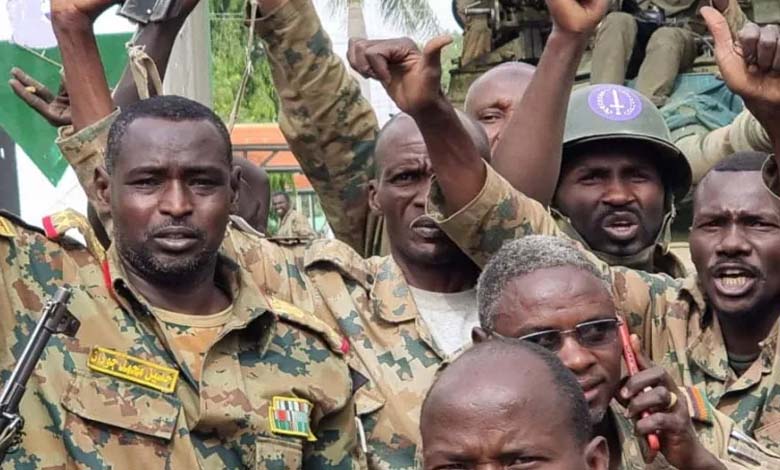What is behind the arming of the Sudanese army for prisoners and outcast figures?

Major General Sadik Sayed was imprisoned on charges of dispersing the General Command sit-in several years ago. He was released at the beginning of the Sudanese crisis and was recently appointed as the commander of the armored forces by the Sudanese army after the death of Major General Ayoub Abdulqadir.
Civilians are not safe from the brutality of the attacks launched by army elements, and some Sudanese pro-democracy groups rallied to support the army.
During the conflict that erupted six months ago between the Sudanese army and the Rapid Support Forces, Al-Burhan relied on outcast figures and prisoners, making them leaders in the Sudanese army.
A longtime activist for democracy said: ‘We believe that this war erupted due to conflicting interests between the generals on both sides, but we witnessed and experienced widespread humiliation at the hands of the army. We saw them forcing ordinary citizens to evacuate their properties and load them onto trucks.’
Among the participants in the army’s fighting are outcast figures and prisoners, and the army has also relied on former military leaders from the al-Bashir regime who followed the Muslim Brotherhood‘s approach.
These groups do not hide their support for the army and its leadership. The fight against the Rapid Support Forces has led to the unification of pro-democracy and opposition groups, and these opposition forces support the government dominated by Islamists, represented by First Lieutenant General Abdel Fattah Al-Burhan and the former dictator Omar al-Bashir.
Al-Burhan called on the Sudanese people to participate in confronting the Rapid Support, which he declared had become a rebel militia. As for Hemeti, he has been keen on recruiting fighters from his native region of Darfur and from the northern Sahel region to strengthen his ranks in the face of the heavily armed army.
The army’s supporters have described the Rapid Support Forces as “foreign militias” because Hemeti recruited fighters from Chad and Niger, insisting that their fight is a national duty.
A coalition of pro-democracy groups in Khartoum said in a statement: ‘We are still against the old regime.’












